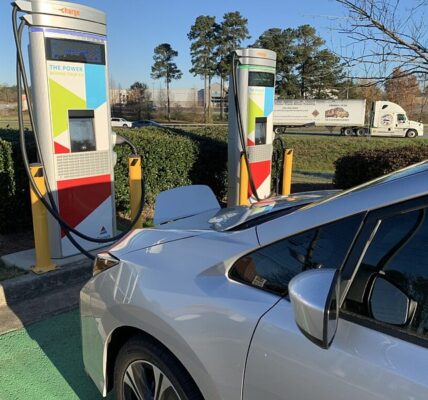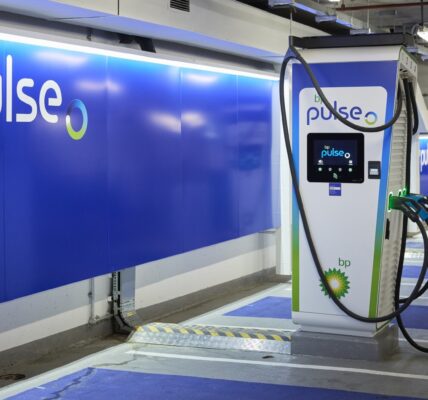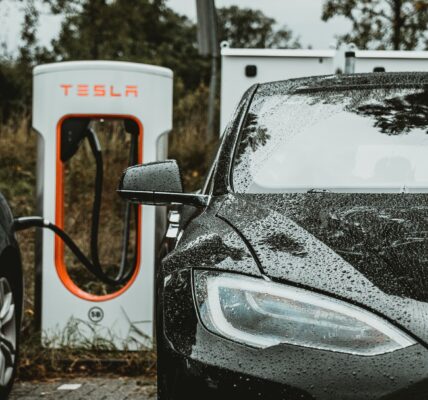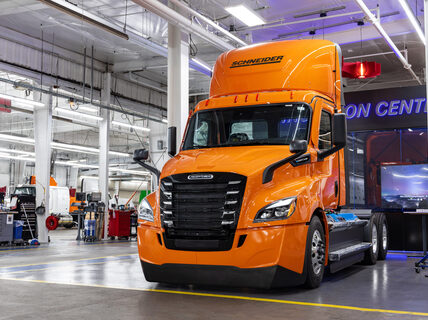The European Union (EU) is launching an investigation into Chinese subsidies for electric vehicles (EVs) in a bid to ward off a flood of cheap imports, an escalation that opens the door to retaliation which would hit the bloc’s carmakers hard.
Following the announcement from European Commission President Ursula von der Leyen, shares in the European auto sector initially rallied on the prospects of protection from up-and-coming Chinese rivals, but then pared those gains on concerns of a backlash.
Taking an unusually aggressive stance, the head of the EU’s executive arm said on Wednesday that the global market is flooded with cheap Chinese cars and that the bloc would fight back.
“Their price is kept artificially low by huge state subsidies. This is distorting our market,” von der Leyen said in her annual speech to the European Parliament. “And as we do not accept this distortion from the inside in our market, we do not accept this from the outside.”
Tensions between China and the EU have been simmering for months. The Asian superpower has taken an increasingly antagonistic stance towards the US and Europe on industrial policy and geopolitics. The transition to cleaner technologies is a particular point of contention, with the bloc’s industrial core at risk to faster state-backed Chinese companies.
“Von der Leyen’s announcement is a positive signal that the European Commission is recognising the increasingly asymmetric situation our industry is faced with,” Sigrid de Vries, director general of the European Automobile Manufacturers’ Association, said in emailed comments to Bloomberg. China’s “apparent advantage” is already impacting European automakers’ domestic market share.
The investigation marks the first concrete step to beat back rival state support for green technologies after more than a year of ever larger subsidies in the US, China, the UK and Europe. Depending on the results of the probe, it could move the countries towards more aggressive and reciprocal protectionist measures.
When President Joe Biden’s administration passed the Inflation Reduction Act (IRA), European governments initially complained that it violated free-trade rules before backing down and instead focusing on carve-outs that would allow their companies to benefit from the incentives.
The EV probe against China is part of a broader strategy from von der Leyen to “de-risk” the relationship with China without “de-coupling.” This has played in out in several areas, including efforts by the EU to restrict sales of high-end semiconductors to Beijing, as well as implement export controls related to quantum computing and artificial intelligence.
The bloc has also called on Beijing to open up its market to rebalance bilateral trade relations and put in place new instruments to address China’s coercive practices targeting countries including Lithuania.
After European companies invested heavily in Chinese joint ventures for years, the country has become home to a slew of EV makers supported by government incentives for both industry and buyers.
With China the biggest market for Volkswagen AG and other German carmakers, tangling with Beijing could be risky. The Stoxx 600 Automobiles & Parts Index rose as much as 2.2%, the most intraday since July 27, and then pared all of those gains to decline 0.3%. VW, Europe’s largest carmaker, swung from an increase of 3.8% to a plus of 0.2%.
While many of China’s upstart companies have yet to consistently generate profits amid a bitter price war, aggressive state industrial policy raises echoes of how China took control of solar-cell manufacturing a decade ago.
“We have not forgotten how China’s unfair trade practices affected our solar industry,” von der Leyen said. “Many young businesses were pushed out by heavily subsidised Chinese competitors. Pioneering companies had to file for bankruptcy.”
The Munich car show last week heightened alarm over the threat from China. Manufacturers including China’s EV leader BYD, Nio and Xpeng were out in force, showing models aimed to woo European buyers away from brands from Volkswagen, Renault and Stellantis.
“China was the IAA Munich motor show’s dominant theme, in a double threat to BMW, Mercedes and VW given the slowing economy makes up about 30% of pretax profit and battery-electric-vehicle imports are mounting with BYD, Xpeng and MG prominent,” said Bloomberg Intelligence analysts Michael Dean and Giacomo Reghelin.
BYD, which this year dethroned VW as China’s top-selling auto brand, has expanded to around 15 countries in Europe. Its Atto 3 crossover SUV was the best-selling electric vehicle in Sweden in July. Its new Seal sedan will start from around €45,000 (RM257,729) in Germany when it goes on sale later this year, making it a direct rival for Tesla’s Model 3 and several Volkswagen cars.
As part of its ambitious Green Deal plan to cut emissions, the EU has implemented an effective ban on combustion-engine cars starting in 2035. But the bloc’s carmakers could get priced out if China aggressively targets the market.
The investigation is a win for France — home to the mass-market Renault, Citroen and Peugeot brands — which has long warned of an influx of Chinese vehicles. The French finance ministry is working on adjusting its own state-funded bonuses for EV purchases in France, with the aim of favouring European production.
Finance Minister Bruno Le Maire is in Berlin on Wednesday to push Germany for tougher measures to protect European industry.
“We now need a European industrial strategy that is much more proactive, much more innovative, much more protective of our industrial interests in relation to China and the US,” he said on Tuesday on French television LCI. “There isn’t a day to lose.”







